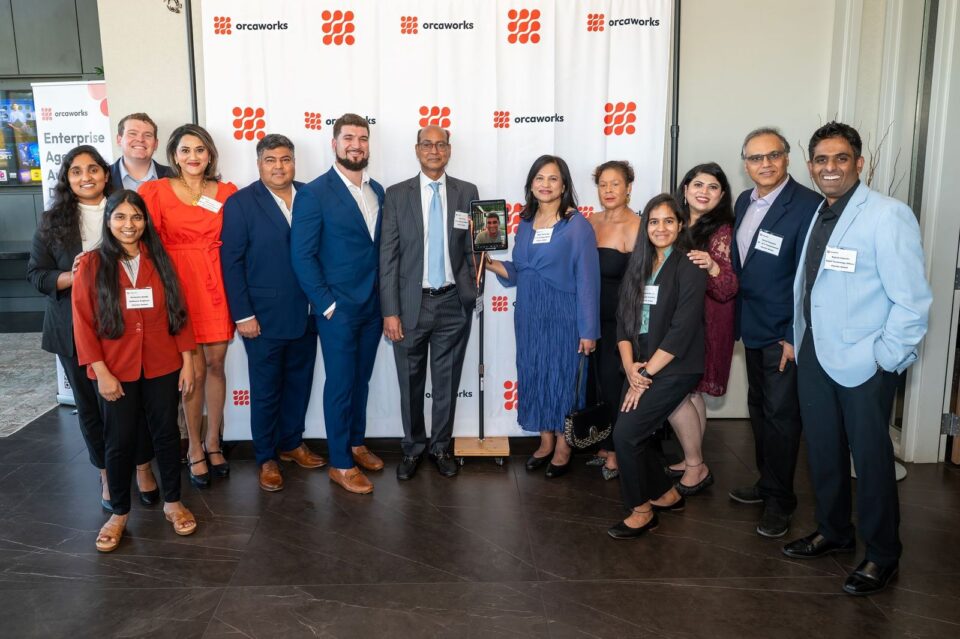BY VEENA RAO / VIDEO BY NAMITA DOGRA SUDAN
Atlanta, GA, October 24, 2025: Charter Global unveiled its latest innovation, Orcaworks, and its flagship product, Orca, at an invite-only launch event at the Bar Peri in Atlanta earlier this month. The evening blended technology and storytelling, as Charter Global leaders explained how the company’s new digital co-worker aims to automate outcomes—not just tasks.
The launch, moderated by Neha Negandhi of Storyteller’s Table, featured a fireside chat with Rajesh Indurthi,
CTO of Charter Global and Chief Information Officer (CIO) of Orcaworks, and Dr. Abhinav Somaraju, PhD, Chief AI Officer. The event marked a milestone in Charter Global’s evolution from a professional services firm to an innovation-driven product company.
Founded by Murli Reddy, Indurthi, and Dr. Somaraju, with Bindu Vemireddy as Chief Strategy Officer, Orcaworks offers what Reddy called “a practical path from pilot to production”—helping enterprises streamline operations and deliver measurable value.
“Mid-sized businesses carry the same operational complexity as large enterprises but with fewer hands and tighter margins,” said Reddy. “They need solutions that help their teams work faster and make better decisions. Orcaworks was built to turn everyday work into measurable outcomes without adding layers of complexity.”
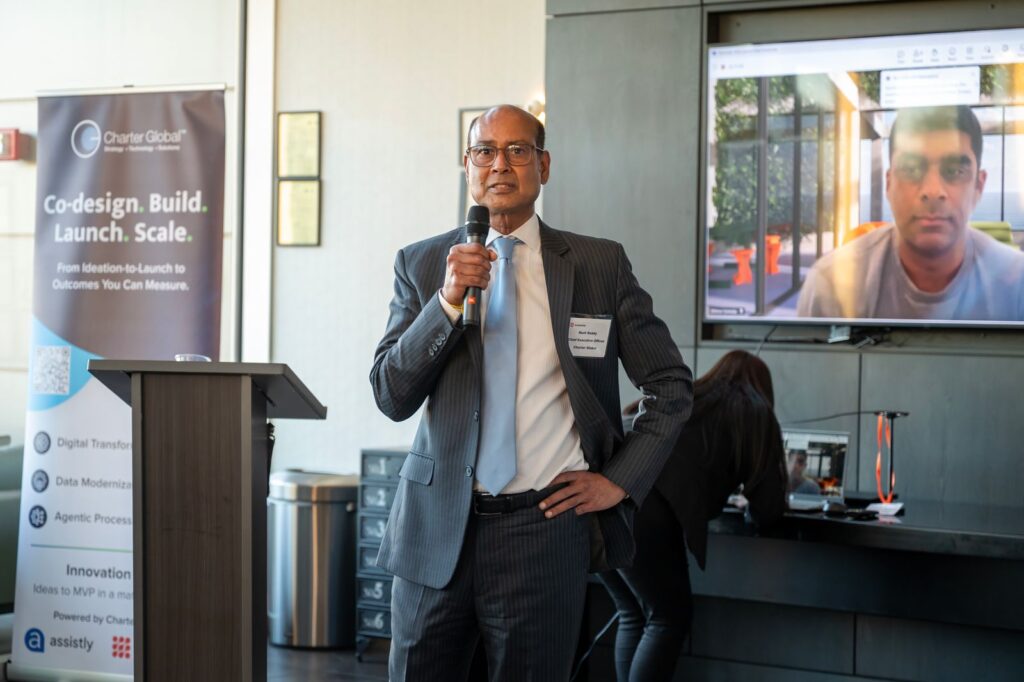
Reddy, who founded Charter Global in 1994, traced the company’s journey through waves of technological change—from client-server to cloud, to data analytics, and now, intelligent automation. “AI is not about replacing people,” he told the audience. “It’s about amplifying human potential so that enterprises can grow without necessarily growing headcount.”
He also reflected on the creation of i3 Labs, Charter Global’s internal innovation hub where Orca was born. “When Rajesh joined us last year,” Reddy said, “he insisted on bringing his entire team of engineers—his innovation tribe—to build something from the ground up. Within months, they built Assistly, a senior-care product that’s now powered by Orca. That’s how fast we can innovate.”
Bindu Vemireddy, Chief Strategy Officer of Charter Global, followed Reddy’s address, offering a behind-the-scenes view of how innovation had become part of the company’s DNA.
“I joined Charter Global about two years ago, bringing experience in both tech and small-business operations. Under Murli’s guidance, and with Rajesh leading the innovation lab, we launched our first product — Assistly, a senior healthcare solution — within 90 days. We onboarded our first beta customers within two weeks, and they were so delighted that they’ve become ambassadors for us, helping bring in more customers.”
“Transforming a 30-year-old company into startup mode isn’t easy,” Vemireddy added. “But as I tell my team: we’re not a 30-year-old company; we’re a 30-year-old startup. Our aim is not just to build pilots — it’s to make them succeed. We’ll measure value, ensure adoption, and help you scale AI that works for you.”
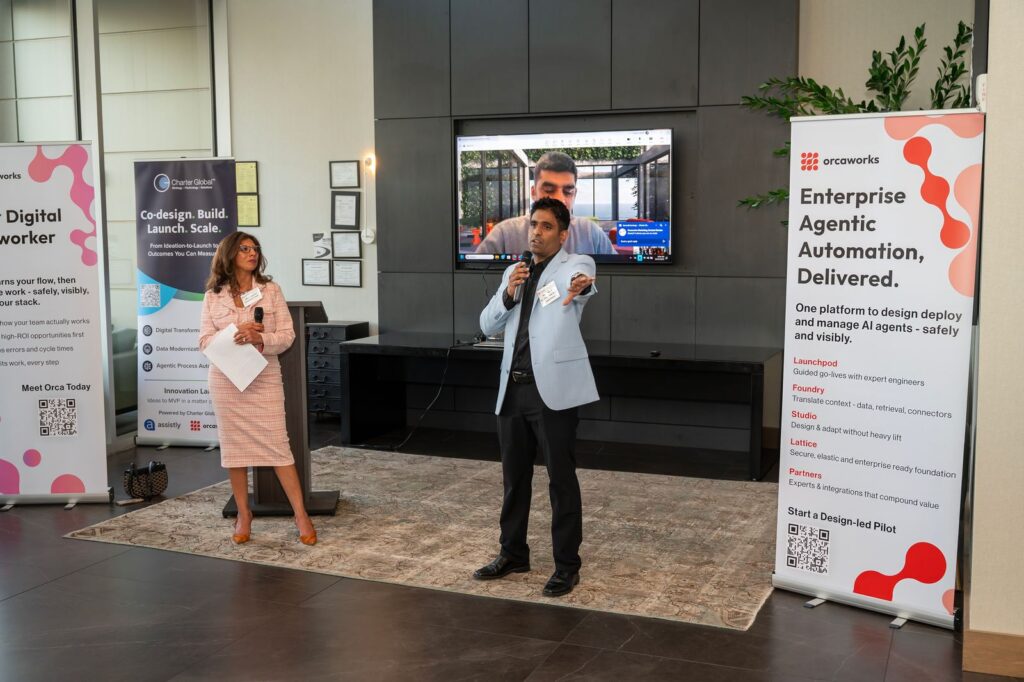
During the fireside chat that followed, Indurthi described Orca as “a digital co-worker, not another bot.” “Think of Orca as a teammate who lives inside your Outlook, Teams, or CRM,” he said. “It reads, decides, and acts—handling repetitive ‘read-decide-update’ cycles so your people can focus on growth.”
Dr. Somaraju elaborated on the philosophy behind Orca. “We’re not trying to replace humans with automation,” he said. “We’re trying to make automation more human-like—contextual, reliable, and auditable. There’s always a human in the loop.”
Negandhi kept the discussion conversational, asking how executives could explain Orca to a CEO in one line. “Orca lets you create digital co-workers who work within the tools your teams already use,” replied Indurthi. “It doesn’t change your workflow—it makes it smarter.”
When asked how Orca differentiates itself from the growing number of AI tools, Indurthi emphasized Charter Global’s design-first approach. “Leaders don’t need another demo,” he said. “They need outcomes. Orca fits the way teams actually work and proves value in weeks, not quarters.”
The session turned interactive when Negandhi opened the floor for audience questions. One executive asked how Orca would impact healthcare. Indurthi explained that Assistly, Charter Global’s healthcare platform, now leverages Orca to triage patient messages, schedule follow-ups, and route cases to the right care teams. “We identify real-world workflows, automate what’s reliable, and measure everything,” he said.
Another attendee wanted to know whether Orca worked for specific industries. “It’s a framework, not a one-size-fits-all product,” Indurthi answered. “Driving down the highway, I look at every franchise—car dealerships, service chains—and think, all of them could be our customers.”
A third question addressed the complexity of integrating Orca with existing systems. “We don’t replace your stack,” said Indurthi. “We plug into it. Whether you use Microsoft, Google, or a homegrown CRM, Orca’s connectors and APIs adapt. We even integrated it into a client’s proprietary EHR in days.”
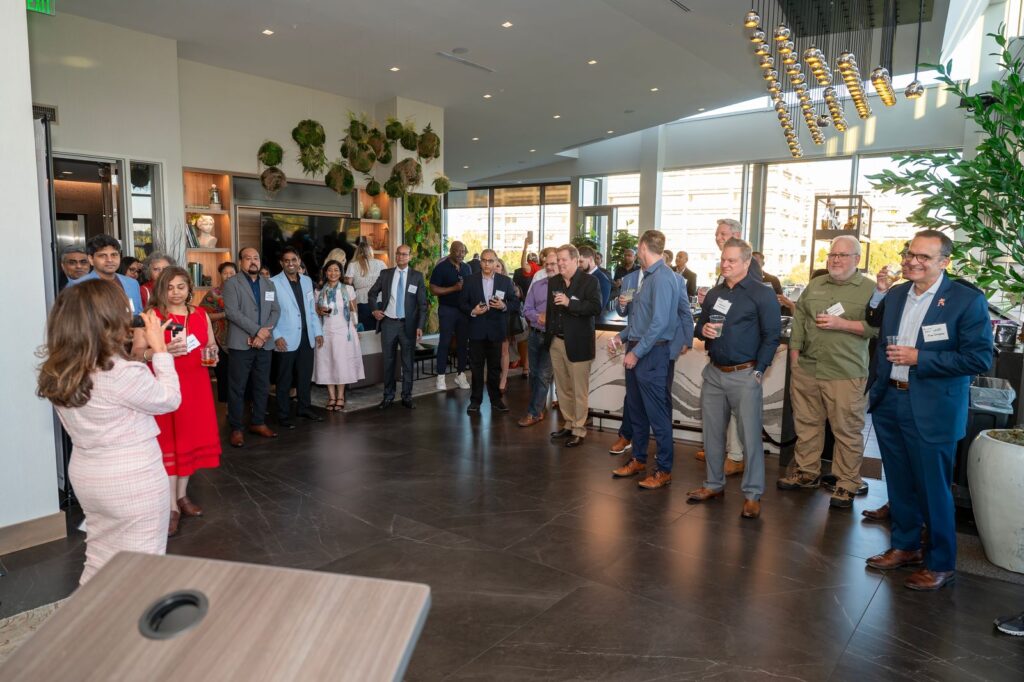
The most relatable question of the night came from a small business owner: how could Orca help with hundreds of daily emails? Indurthi smiled. “Orca will read and cluster your inbox, understand context, draft responses, and even pull data from your CRM to answer recurring questions. At first, it’ll save drafts for you to approve. As confidence grows, it can send some of them automatically.”
Dr. Somaraju added a down-to-earth metaphor that drew laughter from the audience: “AI today is like the first dishwashers—great technology, but you still have to rinse the plates. Orca focuses on the unglamorous but essential parts—data management, governance, workflow design—that make automation actually useful.”
Indurthi followed with another analogy that got nods across the room: “Think of it like baking. Data are your ingredients, context is your recipe, and Orca is the baker that puts it all together. Feed it your mother’s recipe, and you’ll get the same perfect cake every time.”
Throughout the evening, both speakers emphasized that security, transparency, and governance are built into every layer of the platform. “We’ve shifted security to the left,” Somaraju explained. “It’s not an afterthought. Data privacy, observability, and feedback loops are native to Orca’s architecture.”
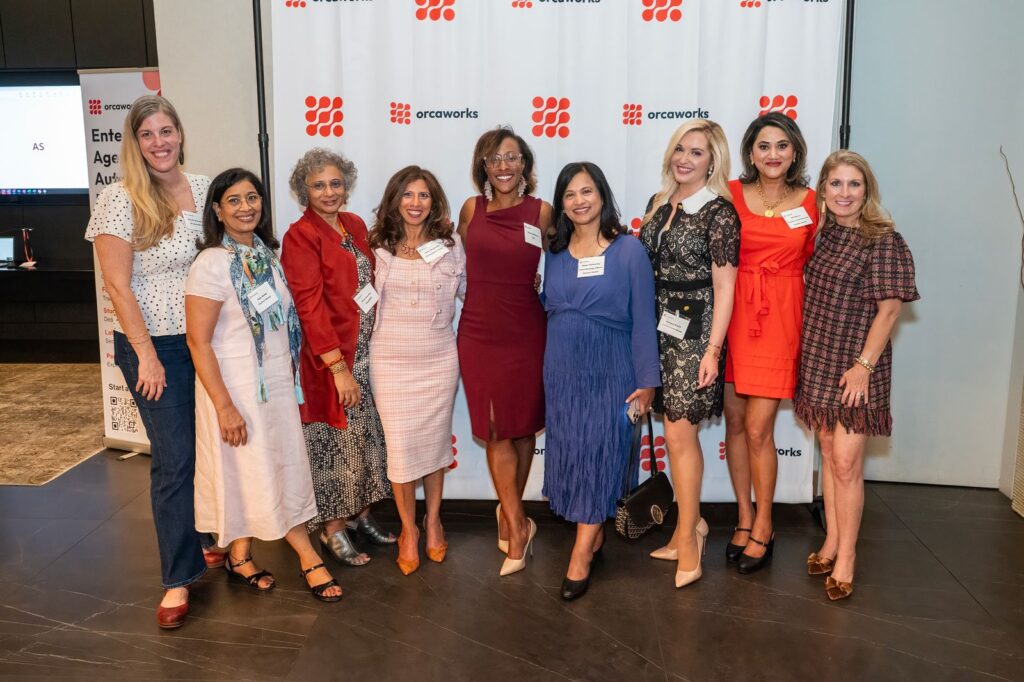
Orcaworks’ modular system includes Orca Launchpad, Orca Foundry, Orca Studio, Orca Lattice, and Orca Partner Circle—each designed to help enterprises co-engineer digital co-workers that fit their exact workflows. Orca agents are co-designed with client experts to mirror real processes and target the highest-ROI steps first. They work securely within existing tools and provide full transparency into inputs, actions, and results.
“Transformation doesn’t happen in isolation,” Reddy said in closing. “Innovation is not a side project anymore—it’s our way of working. Orca represents that shift from services to solutions, from ideas to measurable outcomes.”
The Orcaworks platform and Orca agents are now available for design-led pilots, with wider rollout planned this quarter. Enterprises can schedule a discovery session at www.orcaworks.ai.
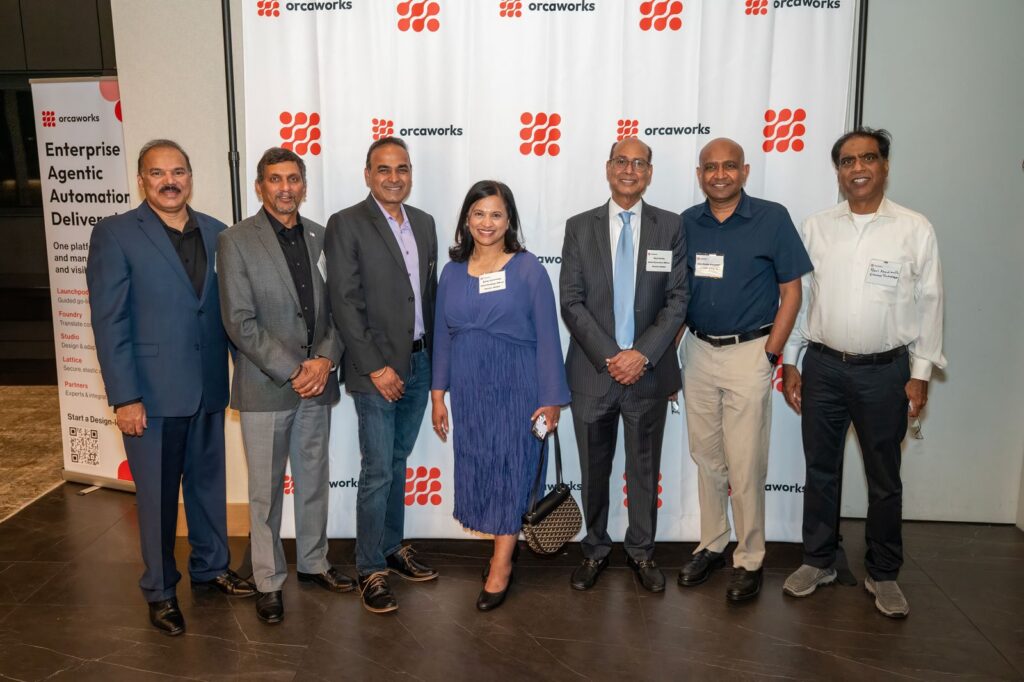
About Orcaworks:
Orcaworks partners with enterprises to co-design digital co-workers (“Orcas”) that integrate into existing tools and workflows, streamlining operations and delivering measurable ROI. Each Orca is context-aware and tailored to automate routine tasks across platforms like HubSpot, Workday, and Microsoft Teams—freeing teams to focus on strategic growth while staying in control.



